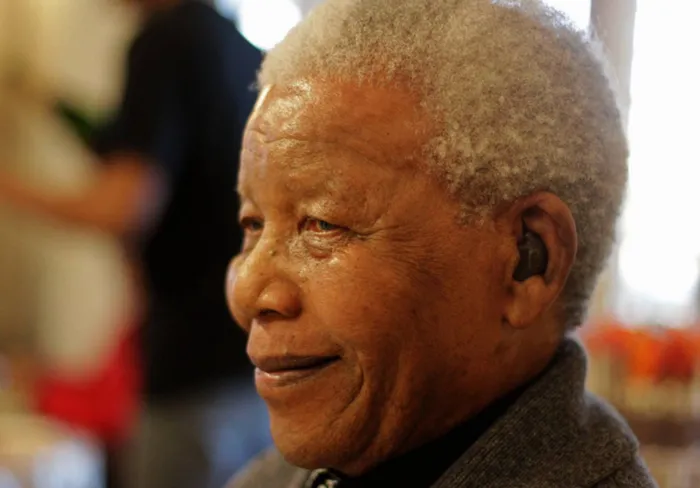
Former President Nelson Mandela is in a "serious but stable" condition after being admitted to a Pretoria hospital early on Saturday morning due to a recurring lung infection. Former President Nelson Mandela is in a "serious but stable" condition after being admitted to a Pretoria hospital early on Saturday morning due to a recurring lung infection.
Johannesburg - Is inheritance an entitlement or a gift? To put it differently, are children justified in suing parents for inheritance? In many parts of the world, people are faced with these vexing questions.
An Australian billionaire, Gina Rinehart, who inherited a mining empire from her father has locked horns with her three children. Although the children were blessed with a stake in the family trust, they are now fighting back in court after being denied ownership shares.
I stumbled upon the article online two weeks ago. It was originally published in the Wall Street Journal.
Court documents state Rinehart is not convinced that her children are fit to manage their fortune.
In some instances, parents who do not have anything to bequeath would normally fill the void by investing in their children’s education.
Some parents would even go as far as buying their children cars when they finish school or go to university. It’s parents’ way of saying: “Thank you and well done, my kids.” It’s normally a voluntary gesture.
In other households, the kind of inheritance parents leave for their children largely depends on the family’s financial background.
I grew up with three brothers. Our father was a clerk. He didn’t bring home a handsome salary. My mother helped with some factory and domestic work.
Like many other parents, they had big dreams for their children. They knew they wouldn’t live forever. (My mother sadly died in 2006.) This left us with only a father, who is now in his late sixties.
My old man’s little pension payout enabled him to transform the family’s four-room house into a neatly built face-brick home, with three backyard rooms. The extended house and an old Ford Cortina bakkie my father bought, are what he proudly shows off as the fruits of his thirty-something years of hard work.
These are his belongings – we accept that.
When we were growing up, our parents used to assure us that they had some funds saved for our future education.
However, life got difficult later, and we never received that money. It didn’t bother us, though. We never complained.
We appreciated the things our parents did for us – taking us through school, feeding us and enabling us to enjoy our first memorable trip to the Durban seaside in the early 1980s. They were doing their best.
In return, we now provide for our surviving parent.
It’s a great gesture from which we hope our children will learn.
In fact, the practice of parents and children looking after each other is a tradition that has been passed on from one generation to the next.
I hope it continues for many years to come.
I wish other children could follow in our footsteps.
However, events that unfolded recently at the Johannesburg High Court left me ashamed – I felt like hiding under the table.
Two sisters, Zenani and Makaziwe, are suing their father, Nelson Mandela, the political icon.
They’re attempting to get the rights to his artwork and control of his millions.
This court battle has been labelled in the press as “Battle for Mandela millions”.
I don’t necessarily want to dwell on this particular court tussle, I merely want to highlight the thorny issue that surrounds inheritance. This column should not be misconstrued as a lecture.
The Mandela example is, after all, not isolated.
In the UK, the Telegraph this year published a story about siblings who lost their whole inheritance in a dispute over their mother’s will.
Lord Justice Mummery, who dubbed the case “calamitous”, even remarked that it was worse than Bleak House. He was referring to the novel penned by Charles Dickens.
The book is about Jarndyce taking on Jarndyce in a vicious family squabble that dragged on for decades. It’s a tale from which many lawyers benefited. And they were the only people who did.
Lessons from that classic, first written in 1852, remain relevant. The Bleak House courtroom circus left none of the parties with any money.
Some years back in Soweto, there were two sisters who shared a family house they had inherited from their mother. The elder sister, I don’t know what got into her, kicked out her younger sibling.
I’m sure we all hear of acrimonious family stories, sparked by this unfortunate culture of entitlement to inheritance. It’s a sad trend.
A man I knew very well once reportedly asked his mother when she would die. Reason? So he could own the family house.
His utterances were disturbing. They mirrored a trend foreign to many of us. But there are heart-warming stories too.
There’s an article, added to a collection of “10 unbelievable inheritance stories”. Written from Budapest, Hungary, it was published in the Austrian Times. It’s about two penniless brothers, Zsolt and Geza Peladi. They lived in a cave outside Budapest, eking out a living by selling scrap metals. The sun finally smiled on them when they inherited more than e100 million from their grandmother’s huge fortune. It’s like hitting a jackpot – the brothers and their sister are living like royals.
There are similar stories with a sweet twist. One of these is about a real estate billionaire who bequeathed a $12m fortune to her pampered pooch. Lucky thing!
The moral of the story? Leaving inheritance to anyone should come from one’s heart. It should not involve ugly legal wrangling. It’s a blessing.
* Pule Makgale is a sub-editor at The Star.
The Star
